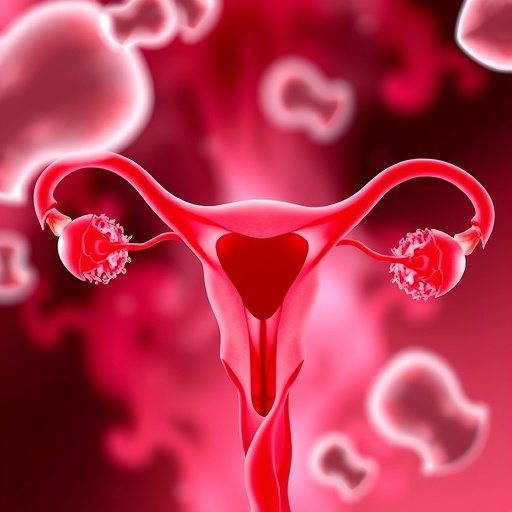In a remarkable study, researchers are shining a spotlight on the potential of umbilical cord mesenchymal stem cells and melatonin to revolutionize treatment for premature ovarian failure (POF). Premature ovarian failure, defined as the loss of ovarian function before the age of 40, affects approximately 1% of women, leading to infertility and a cascade of other health issues. As the medical community seeks effective treatment options, this innovative approach could alter the landscape of reproductive health.
The backdrop of this groundbreaking research is the urgent need to address POF, which can arise from genetic factors, autoimmune disorders, or simply an unexplained origin. As one of the most challenging conditions faced by reproductive endocrinologists, POF not only affects physical health but also takes a significant emotional toll on women and their families. The findings from this novel study aim to provide hope and a new avenue for therapeutic intervention.
At the core of this investigation lies umbilical cord mesenchymal stem cells (UC-MSCs). These cells, derived from the umbilical cord, have garnered attention due to their unique properties, including the ability to differentiate into various cell types, immunomodulation, and anti-inflammatory effects. Researchers have posited that their application could foster ovarian repair and rejuvenation, offering a life-changing solution for those grappling with the symptoms of POF.
In this study, a robust animal model was utilized to simulate conditions of premature ovarian failure. By administering umbilical cord mesenchymal stem cells and melatonin, a powerful antioxidant known for its role in regulating sleep-wake cycles, researchers undertook to assess their efficacy in restoring ovarian function. The objective was clear: to explore whether this combined therapy could rejuvenate ovarian follicles and enhance hormone production, effectively combating the challenges posed by POF.
Notably, the inclusion of melatonin in the treatment regimen distinguishes this research from previous studies focused solely on stem cell therapy. Melatonin’s multifaceted role in cellular repair and its antioxidant properties could synergize with the regenerative potential of UC-MSCs. Preliminary results suggest that this innovative combination might enhance follicular development, restore hormone levels, and perhaps even improve fertility outcomes.
The methodology employed mirrors the rigor of clinical trials, ensuring that the results obtained are both reliable and applicable. Doses of UC-MSCs and melatonin were carefully calibrated, and the animals were monitored for various reproductive parameters, including serum hormone levels, ovarian histology, and overall health. This meticulous approach ensures the credibility of the findings as researchers aim to pave the road toward potential clinical applications.
As the results began to emerge, the implications were profound. Preliminary data indicated a significant increase in ovarian follicle count and health in subjects receiving the combined treatment. Hormonal analyses revealed a notable restoration in levels of estrogen and progesterone, critical hormones for ovarian function and overall reproductive health. These findings provide a tantalizing glimpse into the potential of combining UC-MSCs with melatonin to address POF.
The broader implications of this research extend beyond just the restoration of ovarian function. For many women experiencing POF, the psychological impact can be as debilitating as the physical ramifications. Fertility concerns are often tied to feelings of loss, hopelessness, and anxiety. Therefore, the possibility that this innovative treatment could offer not just a medical solution but also renewed emotional well-being is immensely significant.
With these compelling findings, the research team underscores the need for further exploration into the long-term effects and safety of this treatment approach. While the initial results are promising, a clinical pathway needs to be developed that includes extensive human trials, dosing considerations, and a thorough understanding of how these therapies interact with the body over time.
The journey from lab discovery to patient application is fraught with challenges; however, this study lights the path forward for those seeking hope amid the trials of infertility and premature ovarian failure. Researchers are optimistic that with the right support and funding, this groundbreaking work could transition from bench to bedside in the not-too-distant future.
In conclusion, the investigation of umbilical cord mesenchymal stem cells and melatonin as a treatment for premature ovarian failure is a pivotal development in reproductive medicine. The potential to disrupt the status quo and provide hope to countless women is both exciting and necessary. With continued research and clinical validation, this innovative approach might herald a new era in the treatment of infertility and associated health challenges, representing a beacon of hope for the future.
Subject of Research: Investigation of the Efficacy of Umbilical Cord Mesenchymal Stem Cell and Melatonin Treatment in Premature Ovarian Failure Model.
Article Title: Investigation of the Efficacy of Umbilical Cord Mesenchymal Stem Cell and Melatonin Treatment in Premature Ovarian Failure Model.
Article References:
Jafarzade, A., Anadol, E., Çaydere, M. et al. Investigation of the Efficacy of Umbilical Cord Mesenchymal Stem Cell and Melatonin Treatment in Premature Ovarian Failure Model.
Reprod. Sci. (2025). https://doi.org/10.1007/s43032-025-01942-3
Image Credits: AI Generated
DOI:
Keywords:




